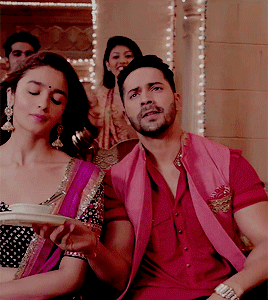17. //POETRY BLOG////art and everything that makes life worth living.//
Don't wanna be here? Send us removal request.
Text
“if you want to get better, you have to find out what you’re avoiding and what you’re afraid of. and maybe what you’re disgusted by. you have to expose yourself to that voluntarily, and you have to let that change you. it’s not a pleasant process. it’s a voluntary confrontation of things that make up life’s horrors.”
— Dr. Jordan Peterson | @wnq-psychology (via thequotejournals)
25K notes
·
View notes
Text
i just want a boy to like me
no not that one
891K notes
·
View notes
Text
I had a job crushing cans, i quit because it was soda-pressing..
22K notes
·
View notes
Text
Reminder- You don’t have to constantly apologize.
195 notes
·
View notes
Text
Common mistakes when studying for exams:
1. Not starting early enough While many students intend to begin studying for final exams a couple of weeks beforehand, that timeline often slips as exams approach. After several days of convincing yourself, it will be OK to skip this one day and get started tomorrow, suddenly what was supposed to be a week of studying turns into one or two frantic nights of cramming. Studying for exams often takes more time than you might anticipate, so make sure you get started early!
2. Studying in chronological rather than priority order One common approach to studying for exams is to sit down and look through all of the notes from class in chronological order. In addition to being a very passive study strategy (more on this below), it also puts you at risk of running out of time to review the material you learned most recently, which is often emphasized more heavily on the final exam. Instead of studying in chronological order, try studying in priority order, spending the majority of your time on the information that will be most important for you to know for the test.
3. Practicing in the wrong format (not how you’ll be tested) I often find that students will study the same way for all of their exams, regardless of the format. For example, they might study for history by making flashcards for all the key terms in their notes. This might be a great strategy for a test that is mostly multiple choice and matching questions…but it could get you into trouble if your test is the mostly short answer and essay questions that require you to answer “why” and “how” questions about the bigger-picture concepts from the class. If you want to be prepared for your exams, you need to make sure that the way you are studying for your test is similar to the way you will actually be tested on the material.
4. Reviewing information you already know Even when students are testing themselves and using active study strategies, they often spend the majority of their time on topics they already know. Doing problems you are familiar with and know how to solve is more comfortable, and gives you a nice boost in your self-confidence. The problem with this approach is that you often end up running out of time to work through the challenging problems that you don’t know how to solve…and those are the ones that you end up missing on the test. Don’t waste your time studying things you already know! Once you’ve confirmed that you understand and can answer questions about a certain concept, check it off your list and move on to something more challenging.
5. Memorizing, rather than understanding I frequently see students who have been studying by trying to memorize all of the facts from a class, rather than truly understanding the underlying concepts. Memorizing can work well in some classes, especially in elementary and middle school, but it often backfires in more advanced classes. If you’ve memorized a definition but don’t really understand what it means, then as soon as the information is presented in a slightly different format, or you’re asked to apply it to a new type of problem, you will have no idea how to proceed. Rather than memorizing the information from your classes, use study strategies that encourage you to understand it. Explaining ideas out loud in your own words, or teaching them to someone else, are great examples of study strategies that promote understanding.
6. Calculating Your Final Grade A lot of students try to figure out what effect different final exam grades will have on their final grade in the course. (For example: “I have to get at least a 90 on the final to get an A in the class.”) Indeed, almost every e-mail I get asking for exam preparation tips seems to be prefaced with some range of scores the student has to hit in order to get some desired final grade.
Don’t do this! No good can possibly come from such a superficial focus on the numbers. It will add stress. This, in turn, will make it harder for you to execute a reasonable, specific, and efficient study plan. Also, it’s just plain crass. You don’t want to be that person…Forget about your G.P.A., and focus, instead, on how you can best prepare for the specific challenge in front of you. If you screw up, you screw up.
Source
16K notes
·
View notes
Text
Trans culture is thinking people hate you before even meeting them.
2K notes
·
View notes
Text
me, every single month without fail: huh weird I feel kind of bloated and lethargic but also very hungry??? and I’m breaking out??? and my back hurts??? this is so strange I have never experienced this before in my whole entire life… what could this be
me a few days later, every single month without fail: oh
285K notes
·
View notes
Text
ur mom hands u a glass of orange juice. u take a sip. its not orange juice. its stirred egg yolks. u spit them all out. u ask ur mom why. she turns around. its not ur mom. its me. ur mom is gone. im ur mother now
550K notes
·
View notes
Text
openly lusting for kitchenware and home goods that you will never be able to afford
202K notes
·
View notes
Photo




jo bhira tere naino se taanka to a a s h i q s u r r e n d e r h u a
187 notes
·
View notes
Text
kinda want a relationship, kinda never wanna get close to another person again
74K notes
·
View notes
Text
anyone would be lucky to date me. i was “a pleasure to have in class”
1M notes
·
View notes
Quote
Maybe that’s what we look for in the people we love, the spark of unhappiness we think we know how to extinguish…
Tom Perotta, Election (via books-n-quotes)
315 notes
·
View notes



